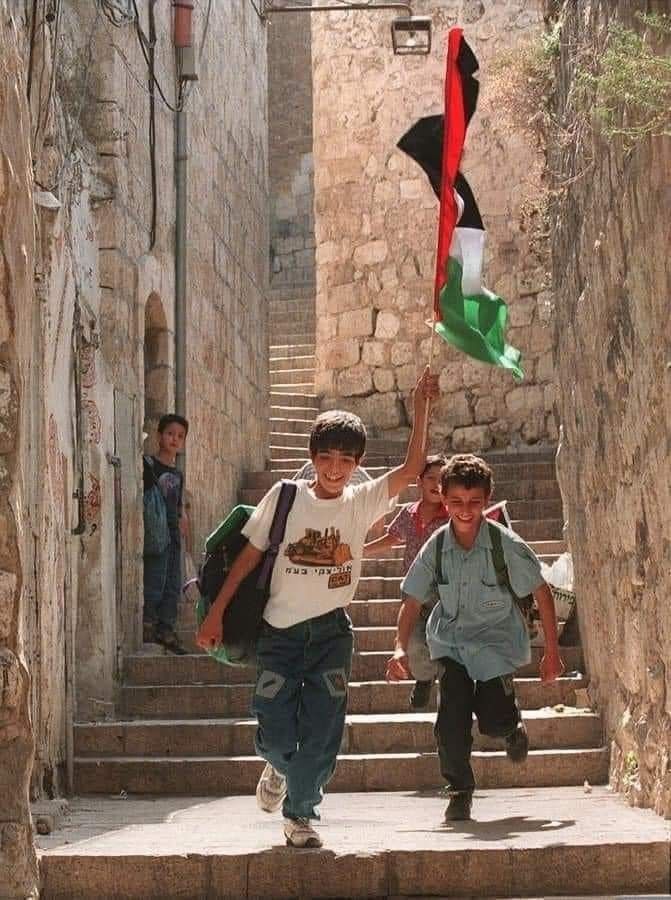“I just feel like Arabs have been dehumanized, and people don’t see that they’re people too, and their hardships and struggles—they’re real.” —FHS Lebanese student
At least nine genocides are ongoing right now—from Sudan to the Congo—yet only a few make headlines. Conflicts in white European countries like Ukraine receive widespread attention, while devastation in mostly brown, Muslim regions like Lebanon, Sudan, and Palestine is often ignored.
Many Fremont High students come from these underrepresented areas, carrying the weight of wars their peers see as distant. This lack of representation not only dehumanizes millions but also affects students everywhere—not just those at Fremont— who are intertwined with these crises.
“I feel like my history and my culture play such a big part of my identity,” said an FHS Lebanese student. “And then at the same time, when people don’t know what [Lebanon] is, they don’t know what’s going on there, and they don’t know about all the pressure and stress you’re under.”
Media Bias & the Hierarchy of Suffering
The media creates a hierarchy of suffering, valuing some lives over others. Palestine is a clear example. What started as a largely ignored genocide has become one of the most featured controversial subjects in the media.
With over 64,000 Palestinians killed since Oct. 7, 2023, the Palestinian genocide meets all the criteria for genocide according to the International Court and B’Tselem, The Israeli Information Center for Human Rights.
This crisis is so controversial that Palestinian students approached for this article were too scared to comment and did not reveal their identity for fear of retaliation.
“We are a nation threatened by disappearance.” —‘Isa and Yusuf al-‘Isa, Filastin, 1914
This statement, written over a century ago, still resonates today, reflecting the ongoing erasure and silencing of Palestinian voices—both in global media and in classrooms like Fremont High.
Stories from Fremont High Lebanon: History and Identity Under Pressure
After recovering from a traumatizing 15-year civil war (1975–1990), Lebanon’s war with Israel reignited. Since October 1, 2024, Israeli forces have killed at least 4,047 people, and more than 3 million people are in need of humanitarian assistance, according to UNICEF.
“When I say I’m Lebanese, people don’t really know what that is. And that’s kind of unfortunate, because it’s an entire region of the world,” said the FHS Lebanese student.
For students like them, the lack of awareness is personally disheartening.
Sudan: Overlooked But Devastating
The Sudanese Civil War, which resumed in 2023, has killed more than 150,000 people and risks becoming the world’s largest humanitarian crisis, according to the World Food Programme.
Despite the heavy death toll, Sudan experiences ten times less coverage than other situations, according to Honest Reporting.
“I think [Sudan] is very overlooked,” said an FHS Sudanese student. “And I feel like it’s not that hard to be a little bit informed about Sudan… not a lot of people even know about it.”
“It changes my perspective, because it makes me feel really helpless. All I can do is just pray for them,” they said.
Constantly educating others on a crisis that should be well known can eventually become isolating, reminding students that their countries’ struggles remain invisible to peers and teachers.
“People around me, they can say, ‘Oh, I’m going to my home country over the summer.’ And it makes me feel a little bit underrepresented, especially because I don’t see people really speaking out against it [Sudan],” the FHS Sudanese student said.
The Toll of Misrepresentation
For students from underrepresented countries, frustration goes beyond silence in the media. Negative stereotypes overshadow the richness of their culture.
“I wish that people knew how beautiful it [Lebanon] was, and how rich of a history we have,” the FHS Lebanese student said.
Stereotypes that portray Arab countries as “always at war” ignore centuries of history and Western colonialism.
“People don’t see the humanity of the people there,” they said.
Even Efforts to Raise Awareness Can Be Blocked
I originally wrote this article for my school newspaper, hoping to highlight the voices of students whose countries are often ignored. While journalism itself had nothing to do with the decision, the school ultimately decided not to publish it as it created an “unsafe” environment within the school.
This refusal mirrors a larger issue: when people try to shed light on underrepresented crises, even well-meaning efforts can be blocked, keeping these stories invisible.
Why This Matters
Every Fremont High student carries a unique story. These nations’ casualties are more than statistics; behind each number is a life, a family, and a history being erased as the world looks away.
When far-right podcaster Charlie Kirk’s assassination made front-page news, the 88 Palestinians killed that same day went unnamed in mainstream U.S. outlets, according to Al Jazeera.
The media’s silence creates a silence at school, leaving students to process crises that very few recognize. True equity begins with recognition, education, and greater representation, both in the classroom and beyond.
“This is your world, you’re living in… I think that it might affect you somehow or another,” the FHS Sudanese student said.
To support students, we must acknowledge the unseen emotional toll of global events. Listening, learning, and amplifying underrepresented voices isn’t just an act of empathy—it’s an act of justice.
Miriam A. is a student journalist at Fremont High School. She originally wrote this article for her school’s publication, but it was pulled due to concerns about the topic’s controversy and the potential for creating an “unsafe” environment. She reached out to the Silicon Valley Voice to ask that the students’ voices be heard. We agreed under the understanding that the students’ names remain anonymous.








